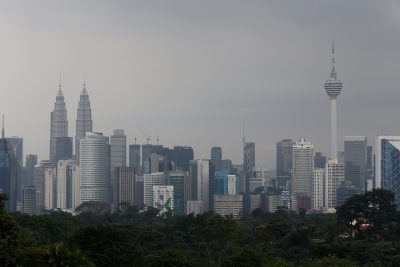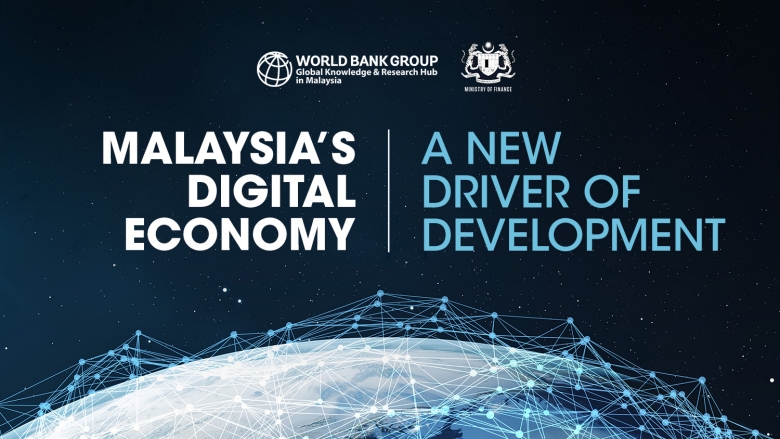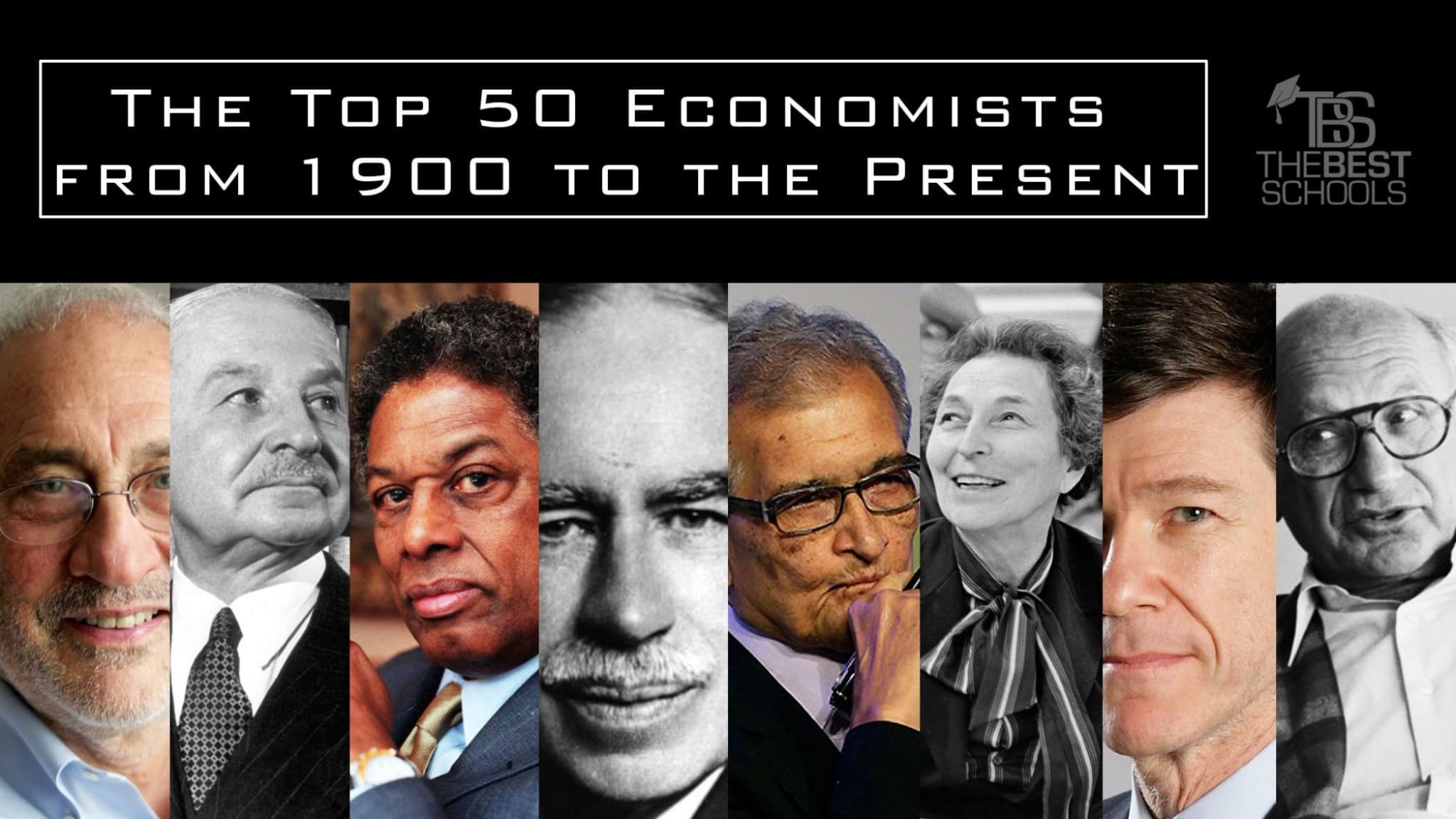Malaysia’s Greatest Crisis: Loss of National Pride and Unity
by Murray Hunter
Love him or hate him, Mahathir Mohamed during his first stint as prime minister was able to instill a great sense of national pride and unity.
Mahathir went on a massive infrastructure drive. Most Malaysians were proud of the Penang Bridge that finally linked the island with the mainland. The North-South Highway project changed the nature of commuting up and down the peninsula. Kuala Lumpur International Airport (KLIA) was built and the development of Putra Jaya gave the country a new seat of administration.
Mahathir’s fait accompli was the building of the KLCC towers in central Kuala Lumpur, which were the tallest in the world at the time. These buildings are now the country’s major icon. Langkawi became a must holiday place for Malaysians. He brought elite Formula One motor racing and built a special purpose circuit for the event. He promoted the Tour de Langkawi as a local version of the Tour de France. He spared no expense on building massive new sporting complexes at Bukit Jalil to host the Commonwealth Games in 1998.
When the member nations of ASEAN abandoned the idea to build a regional car, Mahathir went alone, picking up old technology from Mitsubishi, creating the Proton Saga for better or worse although the national car project has been roundly criticized for losing hundreds of millions of dollars and costing more in terms of consumer lost opportunity.
Nonetheless, Malaysia became an Asian Tiger and Mahathir himself became an outspoken leader internationally. The country was proud of what it had achieved. He knew the value of national symbols. The slogan Malaysia Boleh (Malaysia Can) was often heard along with the waving of the Jalur Gemilang (stripes of glory – Malaysian Flag) at public displays of national pride and unity.
The Barisan Nasional was a working government coalition that symbolized national unity through the make-up of the cabinet and its true multi-ethnic flavor. Ministers like Samy Vellu from the Malaysian India Congress and Ling Liong Sik from the Malaysian Chinese Association had high public profiles.
Although Mahathir was labeled as an ultra-conservative Malay, he worked with anyone who could help him fulfil his vision. Businessmen like Vincent Tan, Robert Kuok, Lim Goh Tong, Ananda Krishnan, and Tony Fernandez all had very close relationships with Mahathir. Malaysia Inc. was more important to Mahathir than Malay supremacy.
That’s now 30 years ago. The prime casualty has been national pride and unity. The generally positive perception of the Mahathir era drastically changed when he abruptly sacked his deputy Anwar Ibrahim from office in 1998. The accusations and conviction of Anwar for sodomy polarized the population. The goodwill that Mahathir had built up over more than 25 years in public life was put into question.
Although it was his intention to eliminate his nemesis Anwar from politics, he made sodomy a household word in a conservative society, taking luster away from his legacy. He was painted by the Anwar propaganda machine and the alternative media as a tyrant with millions of dollars hidden away in foreign banks. In addition, two years of headlines and court reports about Anwar’s sodomy trial took away a sense of innocence, showing Malaysia’s ‘dark side’ with TV pictures showing a stained mattress being carted into and out of court every day on which Anwar was convicted of performing sodomy.
Under weak successors, belief in government further faltered. Respect for national leaders took another hit with Mahathir’s successor Ahmad Badawi painted as someone who slept on the job and enjoyed a luxurious lifestyle while many suffered economically. Badawi was painted by the PKR propaganda machine as corrupt. The dealings of his son-in-law and political adviser Khairy Jamaluddin were portrayed as corrupt nepotism.
Mahathir engineered an ungraceful exit for Badawi, replacing him with Najib Razak in 2009. The Najib premiership was tainted from the outset with rumors of murder and corruption. Najib’s wife Rosmah also became an object of ridicule, bringing respect for the institution of government to an all-time low.
However, it’s not just the corruption of politicians that destroyed respect for Malaysian institutions. The rakyat (people) have always wanted to believe in royalty. Even with stories about royal misdoings, there is no real talk of abolishing the monarchy. Whenever a member of one of the royal families acts in the interests of the rakyat, there has always been public praise and support. However, when members of a royal family act against the interests of the rakyat, the social media react.
Stories have been circulating for years about the misdeeds of Johor Royal Family. The current spat between Tunku Ismail, the Johor Crown Prince, commonly known as TMJ and Mahathir is extremely damaging for the royal institutions. Only the sedition act, a de facto lese-majeste law, is protecting the institution from much wider criticism.
Royal decorations and titles, VVIP service in government offices and special treatment for some citizens over others, shows a muddled Malaysia still clinging to the vestiges of feudalism. These artefacts are doing nothing to unite the country, a hangover from the old days of colonial class distinction.
However, the most powerful source of destruction for national pride and unity is the ketuanan Melayu (Malay Superiority) narrative which has become much more extreme. One of the basic assumptions is that bumiputeras — indigenous peoples – are the rightful owners of the land. From the point of view of the ketuanan proponents, land is not seen as a national symbol and non-Malays are excluded. This is a great barrier to developing any sense of national pride and unity.
The gulf between Malay and non-Malay has widened dramatically over the last two generations as Islam has grown into a major aspect of Malay identity. Citizens once celebrated their diverse ethnicities in harmony. Decrees made in the name of Islam now discourage this. No longer are Hari Raya, Chinese New Year, Deepavali and Christmas shared Malaysian experiences.
The way of life has become Islamized to the point where there is little place for other religions and traditions. Food, dress codes, entertainment, education, the civil service, government, police and the military are all Islamized.
Shared apprehensions about what Malaysia will be have caused the Chinese to close ranks. The influence of Ketuanan Melayu in government policy excludes non-Malay participation in many fields like education, civil service and the military, etc. The younger generation of Chinese today tend to see themselves as Chinese first and Malaysians second. Chinese schools promote language and a strong sense of Chinese culture over a Malaysian identity as a mass defence mechanism.
The New Economic Policy, put in place in 1969 after disastrous race riots as an affirmative action program for the majority Malays, has also done a disservice to those it was designed to help. The thesis of Mahathir’s book The Malay Dilemma was that Malays were basically lazy and needed help from the government is the faulty grounding assumption. The NEP is actually an attack on Malay self-esteem.
Rather than offering something spiritual, Islam has become a doctrine of conformity, where particular rights and rituals must legally be adhered to. Failure to do so in the case of not fasting during Ramadan can lead to punitive legal action. Any views outside narrow social norms lead to heavy criticism. Just recently the Islamic authorities (JAKIM) in Selangor started investigating a discussion forum on women’s choice about wearing the hijab. Not just freedom of discussion is stifled, but also the right to be creative.
Islam has buried the principles of Rukun Negara (national principles), the supposed guiding philosophy of the nation. Rukun Negara was once a symbol of national pride and unity but has almost totally been replaced by a Doa (or prayer) before public events. A sense of nation has been sacrificed for the Islamization of public gatherings.
Today we see much less flag-waving during the Merdeka season. There are more divisional narratives on all ethnic sides. There is disappointment with the political system. Islam is seen by many as something overpowering rather than emancipating. People feel they need to conform to be accepted in society.
National pride and unity are at their lowest ebb since independence, where after 30 years of education the younger generations of Malays see Islam as more important than nationalism. Chinese and Indians are apprehensive about what Malaysia is turning into. Even the Orang Asli – the original inhabitants of the peninsula before the arrival of ethnic Malays from Indonesia — and non-Muslim indigenous people of Sabah and Sarawak identify as second-class.
Malaysia has travelled far away from the aspirations of Tunku Abdul Rahman when the Jalur Gemilang was raised for the first time over a free Malaya in 1957. Malaysia’s economic prosperity is relatively declining in the region and the nation is increasingly strangled by the need to conform. Malaysia appears to be a ship without a rudder, its reform agenda locked away under the Official Secrets Act.
The possibility of racial violence festering once again cannot be overlooked. Divisive narratives are being pushed until one day an unknown tipping point could be reached. The strong sense of social conformity, the exclusion of a national sense of ownership to all, the current totalitarian nature of authority and ketuanan Melayu narratives are a very dangerous mix.
Murray Hunter is a regular Asia Sentinel contributor. He is a development specialist and a longtime resident of the region.







NEW YORK – The economics profession took a beating after most of its leading practitioners failed to predict the 2008 global financial crisis, and it has been struggling to recover ever since. Not only were the years following the crash marked by unusually low, unequal growth; now we are witnessing a growing list of economic and financial phenomena that economists cannot readily explain.
Like Queen Elizabeth II, who famously asked in November 2008 why nobody had seen the crisis coming, many citizens have grown increasingly skeptical of economists’ ability to explain and predict economic developments, let alone offer sound guidance to policymakers. Some surveys rank economists among the least trusted professionals (after politicians, of course, whose trust economists have also lost).
A solid economic training is no longer regarded as a must-have for candidates for top positions in finance ministries and central banks. This marginalization has further weakened economists’ ability to inform and influence decision-making on issues that relate directly to their expertise (or what they would call their comparative and absolute advantage).
The profession owes its deteriorating reputation largely to excessive reliance on its own self-imposed orthodoxies. With more openness to interdisciplinary approaches and the broader use of existing analytical tools, particularly those offered by behavioral science and game theory, mainstream economics could start to overcome its shortcomings.Three recent developments underscore the urgency of this challenge. In the 12 months between the World Economic Forum’s 2018 and 2019 annual gatherings in Davos, those in attendance went from celebrating a synchronized global growth pickup to worrying about a synchronized global slowdown. Notwithstanding the deterioration in European growth prospects, neither the extent nor the speed of the change in consensus seems warranted by economic and financial developments, which suggests that economists may have misdiagnosed the initial conditions.
A second area of concern is monetary policy. Professional economists still have not spoken up clearly enough about the challenges facing the US Federal Reserve’s communication strategy, despite the fact that even slight misfires, such as occurred in the fourth quarter of last year, can trigger severe bouts of financial instability that threaten growth. Instead, they have simply continued to embrace the contemporary view that greater Fed transparency is always a good thing.
We have come a long way since the era of former Fed Chair Alan Greenspan’s “Fedspeak” (or, as he put it, “mumbling with great incoherence”). But that raises a new problem: illusionary precision. The Fed now follows every policy meeting with a release of statements, minutes, transcripts, blue-dot plots, and a press conference, signaling to markets a level of sophistication that is scarcely realistic in a world of fluidity and heightened uncertainty.
Rather than simply going along with the view that more is better, economists should be urging the Fed to adopt an approach more like that of the Bank of England, which emphasizes scenario analyses and fan charts. Economists could also be doing more to inform – and perhaps even influence – the Fed’s ongoing review of its policy frameworks and communications strategy. After all, the economics literature on asymmetrical information suggests that greater input from economists outside of the Fed is both appropriate and necessary for ensuring an optimal policy outcome.
A third area of concern is the Sino-American trade conflict, which is more controversial, owing to its political nature. So far, the vast majority of economists have trotted out the conventional argument that tariffs (real or threatened) are always bad for everyone. In doing so, they have ignored work from their own profession showing how the promised benefits of trade, while substantial, can be undermined by market and institutional imperfections. Those who wanted to make a productive contribution to the debate should have taken a more nuanced approach, applying tools from game theory to distinguish between the “what” and the “how” of trade warfare.
These are just three recent examples of how economists have dropped the ball. In addition, economists are struggling to explain recent productivity developments, the implications of rising inequality, the impact of persistently negative interest rates in the euro-zone, the longer-term effects of other unconventional monetary policy measures (amplified by the European Central Bank’s latest policy pivot), and the sudden slowdown in European growth. They also failed to foresee the Brexit saga and the political explosion of anger and alienation across the West in general.
None of this is a huge surprise, given the profession’s embrace of simplistic theoretical assumptions and excessive reliance on mathematical techniques that prize elegance over real-world applicability. Mainstream economics has placed far too much analytical emphasis on the equilibrium condition, while largely ignoring the importance of transitions and tipping points, not to mention multiple-equilibria scenarios. And the profession has routinely failed to account adequately for financial links, behavioral-science insights, and rapidly evolving secular and structural forces such as technological innovation, climate change, and the rise of China.
All of this should tell economists that there is plenty of room for improvement, and that they need to expand the scope of their analysis to take into account human interactions, distributional effects, financial-economic feedback mechanisms, and technological change. But this cannot just be about devising new analytical models within the field; economists also must incorporate insights from other disciplines that the profession has overlooked.
A discipline long dominated by “high priests” must now adopt a more open mindset. That means acknowledging and addressing unconscious biases, not least by making a concerted effort to improve inclusion and diversity within the field. It also means focusing more on inter-disciplinary approaches and distributional effects, and less on the purity of mathematical models, average conditions, and just the belly of distributions. Such structural changes will require more and better intellectual and institutional “safe zones,” so that analytical disruptions can be managed and channeled in productive directions.
Without significant adjustments, mainstream economics will remain two steps behind changing realities on the ground, and economists will be risking a further loss of credibility and influence. In an era of concern about climate change, political upheavals, and technological disruption, the shortcomings of mainstream economics must be addressed posthaste.
Keynesian economics works very well in understanding the last recession. The shock was very large, so large that interest rates hit the zero lower bound. What Keynesian economics says needs to be done then is fiscal stimulus. A little bit of that was done, but never enough. Resistance to it from many economists, who should have known better, drowned out the warnings of economists like Paul Krugman, who warned all along that what was being done was far too little. And when that proved right, far too many economists pinned the blame for the failure on what stimulus there had been instead of on the lack of adequate stimulus, and began preaching austerity. With economists speaking with such a divided voice, it is hard to blame politicians much if they steered a course somewhere in the middle. But that course was a disaster. Long years of unnecessary suffering were the result.
The only country to really apply Keynesian economics was China. It quickly implemented a stimulus plan that was 15% of it GDP (vs. ~2% elsewhere). The result was that it nipped the recession in the bud and continued its rapid growth.
The biggest mathematical problem they have is declaring an equal sign in algebra to be causation rather than correlation. Ridiculous conclusions like trade deficits are “caused by” low savings is one example. It is like saying a car moves because smoke comes out of the exhaust pipe. They are correlated only. Once incentives (i.e. behavioral) are put on the lhs of the equation you get Trade Deficits cause by stealing profits to maintain political control financed by state banks or central banks.
As for the Fed, they don’t have the guts to tell the US govt to balance trade and announce that they will not be complicit it another bubble caused by low rates and excessive deficits. Accountability? Don’t count on it.
The only antidote to the correlation-causation problem is to perform what is called by the IT industry AB testing. Create a hypotheses and test how it works with a control group. I would like to see more of this scientific approach by governments and their economists at a macroeconomic level.
But there’s another critical aspect here, relative to 2008: “CRIME.”
In the years leading up to 2008, financial crime was rampant. Critical protective legislation such as the Glass-Steagall Act was dumped. Trading in “derivative securities” went wild, and when bets went bad they were shoved into the banks, so that governments would have to “bail them out” as “too big to fail.”
The result was an explosion in the number of currency-units in circulation, and the papering-over of the consequences of these willfully criminal acts without doing anything to punish the wrongdoers or to reform the things which they exploited. The crimes did not stop and still haven’t stopped. Instead, they’re presented as though they were “the new normal.”
I think that economists routinely overlook the “crime” factor – the simple fact that people will steal when given the opportunity, and that overseers and “enforcement” authorities can easily be in-cahoots. The events of 2008 were principally the consequence of criminal activity, and the so-called “quantitative easing” response was to let the criminals avoid punishment while cashing-in all their chips. “Crime DID pay.” For them. But it meant that everybody else … lost, and are still losing.